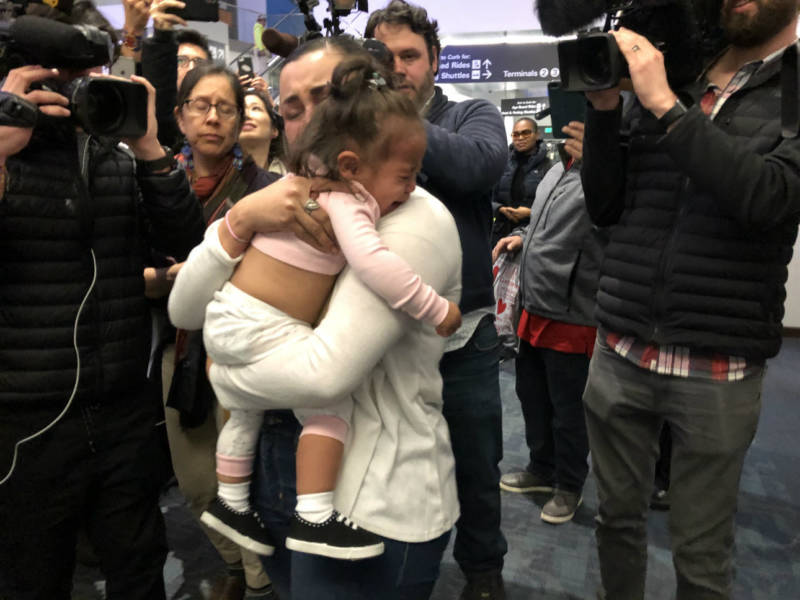A federal judge in San Diego on Monday ordered the Trump administration to provide all documentation relating to migrant family separations, a practice that has continued despite a June 2018 court order. More than 1,000 children have been separated from parents since then.
“It is beyond shocking that the Trump administration continues to take babies from their parents,” ACLU lawyer Lee Gelernt said in a statement. Gelernt is representing migrant parents, whose children were forcibly taken away by border officials, in a class-action lawsuit. “The administration cannot simply ignore the nationwide injunction over minor infractions.”
During a status conference on Friday, lawyers representing the federal government argued that the original injunction allows them to separate parents from their children if the parents are considered "unfit" or "a danger to the child."
But in court, Gelernt questioned if the government's motivation for separation was truly for reasons of safety.
"The government is more than happy to take these parents, that they deem a danger to their child, and remove them together. So they're more than happy to put them together when it means getting rid of them," Gelernt said.
The ACLU is asking that the judge reassess the original injunction to more explicitly address or provide guidelines for when children can be taken away from parents with a criminal history.
The ACLU is also asking that the government provide plaintiffs with lists of separated children on a weekly basis. In a joint status report to the judge earlier this month, the ACLU said it has been provided “one updated list tracking continuing separation of families” on Aug. 20. But plaintiffs' lawyers said the information was a month old, making it difficult to begin the process of finding and potentially reuniting the children with their parents.
